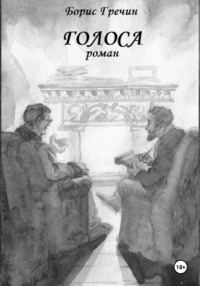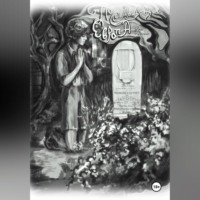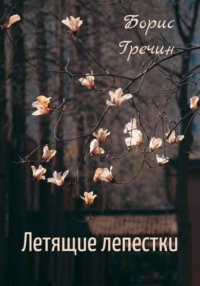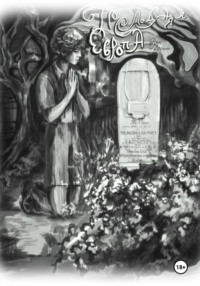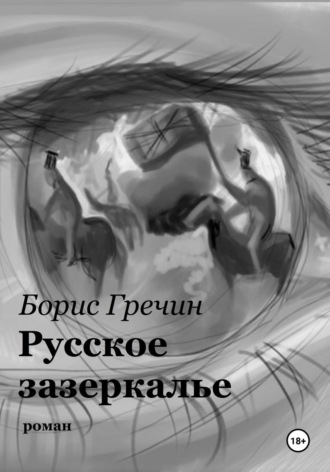
Полная версия
Русское зазеркалье
– Пруд пруди! Понимаете, тётя Алиса, здесь все, кого когда-то люди знали, а потом забыли, но не до конца, потому и Роща Полузабвения.
– То есть вся славянская мифология тоже здесь собралась? Разные лешие, кикиморы, чуланники, подкроватники?
– А то как же! И Кошей Бессмертный, и Пельземуха с Вархуилом, и Финист-Ясный-Сокол иногда слетает. Не бойтесь, я вас не дам в обиду, если только…
В воздухе раздалось хлопанье огромных крыльев, и я снова вся обмерла, успев только шепнуть:
– Сова?
Ёж презрительно фыркнул:
– Сирин!
А на вершину дерева рядом со мной уже опускался исполинский Сирин (деревце аж хрустнуло под его весом), ничем не отличный от филина двухметрового роста, кроме человеческой головы – мужской головы с большой залысиной и остатками седых волос, гладко выбритой, брезгливо-надменной. Сирин сложил крылья и недовольно обратился ко мне:
– Я желаю с вами побеседовать, сударыня.
– Э-э-э… пожалуйста, – нашлась я и сделала книксен.
– Вы с какой стати в своей публичной лекции заявили, что моя «Лолита» хуже моей «Машеньки»? – продолжал Сирин с усталой претензией в голосе.
– Но послушайте, Владимир Владимирович, – запротестовала я, – ведь это очевидные вещи!
– Докажите!
– Доказывать не буду, потому что о вкусах не спорят.
– Умно, – признал Сирин. – Но совершенно мимо: как это не спорят? Только о них и спорят! Если ад – это другие, то ведь и рай – это другие, верно? А если другие – это рай, то в нашем стремлении стать демиургами своего собственного кусочка рая на Земле нет ничего возбранного – вы следите за мыслью? – Я оторопело кивнула, пытаясь продумать эту мощную софистику. – Его нет, даже когда наш образ рая другим кажется девиацией. Девиаций не существует! Приняв себя, примем и других, а приняв других, примем и их право на личное счастье. Вы не понимаете? Подойдите ближе, загляните в мои глаза, в эти старые мудрые глаза много любившего человека – и вы всё поймёте…
Не отдавая себе отчёта, я сделала по направлению к Сирину шаг – другой… Ёжик громко фыркнул над самым моим ухом.
– Ты, любитель малолеток, летел бы ты отсюда! – гавкнул он. – А то сейчас как вытяну тебя палкой по хребтине! А могу и за ляжку укусить…
Сирин оскорблённо приосанился, нахохлился:
– Я не готов вести филологическую дискуссию в таком тоне! Уймите вашего сатрапа, мадам!
– Вы бы, правда, летели, – мягко посоветовала я. – А то за ним не заржавеет…
Медленно, нехотя Сирин расправил крылья и вспорхнул с деревца. «Не нагадил бы нам на голову из мести», – обеспокоенно подумала я. Но нет, обошлось.
– Спасибо, Ёжик! – искренне поблагодарила я, догоняя своего проводника, который потрусил дальше по тропинке. – Послушай я этого певца… вечной пубертатности, летела бы сейчас в Нижние Грязищи вверх тормашками.
– Вы бы не отделались так легко, тётя Алиса, – сухо ответил Ёж. – В Нижних Грязищах ещё жить можно, а он бы вас сволок в Половые Щели.
– Ку-да?!
– Да есть одно такое местечко для извращенцев и рукоблудов… – неохотно пояснил вергилий. – Как выглядит, не знаю и знать не хочу. Раньше было захолустье захолустьем, а теперь толпами народ валит, плывут пароходы, летят самолёты, и всё привет Мальчишу – тьфу!
Мы между тем шли дальше, знакомясь через каждые пять минут всё с новыми персонажами русского бессознательного. Повстречался нам огромный чёрный Кот-Баюн с толстой золотой цепью на груди, который тут же лёг поперёк дороги и заявил, что он на самом деле – Чеширский Кот, а коли он Чеширский, то надобно мне его чесать, иначе он нас ни за что не пропустит. Кот-Баюн даже успел мне вручить серебряную палочку полуметровой длины со стилизованной ладонью на конце и с гордым названием «джентльменское чесало» – я озадаченно стояла с чесалом в руках, не зная, с чего начинать, когда Ёж шепнул Коту на ухо, что мимо, мол, совсем недавно пролетал Сирин – и Кот, позабыв про расчёсывание, резво упрыгал охотиться на Сирина. «Джентльменское чесало» я некоторое время несла в руке как трофей, а потом выкинула: на что оно мне сдалось? Ёжик пояснил мне меж тем, что это был, скорей всего, не настоящий Кот-Баюн, а Кот-Бегемот: именно, дескать, в духе последнего откалывать такие шуточки с созданием вещей из воздуха и так далее. Повстречались трое сущих кикимор – с ними Ёж не стал вступать ни в какой осмысленный диалог, а встав на четвереньки, яростно облаял (подействовало). Плёлся одно время за нами некто по имени Лесной Плакунчик, мужичок-моховичок с бородой в три раза длинней собственного роста, с грибной шляпкой на голове, и плакался нам на свою горькую нужду – у меня уже и самой защипало в глазах, но тут Ёж подобрался к Лесному Плакунчику сзади и поддал его головой словно мячик – тот улетел в кусты и больше не появлялся. Встретился некто моего собственного роста, заросший чёрной шерстью и с большими рогами, но с выразительным, почти интеллигентным человечьим лицом, занимающим две трети от высоты тела, по имени Бада, – с ним Ёж поздоровался, обменялся парой малозначащих реплик и по-приятельски посоветовал средство от ревматизма. Мной Бада не заинтересовался, только хмуро кивнул в качестве приветствия (ему приходилось кивать бровями, так как кивать головой в его случае означало бы кланяться всем телом) да обронил: «Выросла девочка…» В погоне за аппетитной бутявкой пересекли тропинку, путаясь под ногами, разноцветные калушата, а за ними гналась Калуша, подозрительно похожая на Людмилу Петрушевскую. Наконец, Ёжик остановился и произнёс почти что с обидой в голосе:
– Слушайте, тётя Алиса: мы так никогда не дойдём!
– А… куда мы идём? И почему никогда не дойдём?
– Мы идём к Мудрецу, а не дойдём никогда потому, что вы творите фантазмы на каждом шагу! Entia non sunt multiplicanda praeter necessitatem!46
– Так это я их творю? – поразилась я.
– Ну, не прямо творите: призываете из пространства… А то кто же? Мои тут были только бляхи-мухи…
– А Бада разве не твой приятель?
– У меня тут полмира приятелей, а так-то он из вашего детства.
– Виновата! А как выглядит Мудрец?
– Понятия не имею! Каждый его видит по-разному.
– А ты?
– Как вы его увидите, таким и мне придётся, – Ёж устало вздохнул.
– Хорошо: где он живёт?
– Под Деревом.
Едва Ёж это сказал, я увидела и само Дерево – и через несколько наших шагов Дерево приблизилось к нам, захватило всё поле зрения, раскинуло ветви по всему небу. Мой вергилий опустился в траву, прикрыл нос лапками, помаргивая: жест то ли почтительного простирания, то ли невольной опаски.
Что-то мелькнуло по стволу, и на хвосте перед нами встала огромная кобра. Ёжик недовольно фыркнул.
– Здравствуй, Змея, – оробело шепнула я, признавая в кобре свою знакомую (правда, в Нижних Грязищах она была Гюрзой). – Извини, Ёжик, я не специально… Мы ведь уже встречались?
Змея с достоинством кивнула. Произнесла:
– Мы давно знакомы.
И прибавила нараспев, прикрыв глаза, возможно, с долей иронии:
I seem to have met you in numberless forms, numberless times…
In life after life, in age after age, forever.47
Ёж поморщился, недовольно засопел.
– Вы бы, тётя-змея, на латыни лучше, – попросил он. – А то я в новых языках не очень…
Я бросила взгляд на Ежа, только сейчас всерьёз подумав, что он – старое, почти древнее существо. Вот и эти морщинки у глаз, и воспоминания про князя Льва Николаевича…
Змея не удостоила его ответом. Приблизив свою голову почти вплотную к моей, она спросила меня:
– Ты ведь так и продолжаешь искать того же человека?
Я кивнула, зябко поёжившись.
– Здесь его нет, – пояснила Змея. – Но он здесь был. Тебе нужны подробности?
В ответ на мой второй кивок Змея скользнула в траву – и через минуту вернулась с другой стороны дерева, неся в пасти толстую книгу, похожую на телефонный справочник. Я осторожно приняла из её пасти книгу, и Змея стала быстро листать страницы языком.
– Ёж, поищи-ка мне очки, – попросила она совсем по-свойски и немного бесцеремонно. – Я ж очковая кобра, всё-таки…
Ёж, вздохнув, открыл маленькую дверку у подножья дерева, достал оттуда очки и водрузил их на Змею, несколько наискось.
– Талант, одно слово, – прокомментировала Змея и почти сразу прибавила: – Нашла. Алиса, твой знакомый был здесь одну неделю в январе 2017 года.
– А ушёл куда? – уточнил Ёж.
– На Линию Фронта.
– Нам прямо сейчас идти на Линию Фронта? – огорчился мой проводник. – Я устал, у меня лапки!
– Заметили уже, и что кривые, тоже заметили… Нет, не надо никуда идти: тебя там всё равно не ждут, а Алисе надо возвращаться на Землю. Её тело лежит два часа в одной позе и совсем окоченело…
Метнувшись к карману моего платья, Змея неуловимым движением языка достала зеркальце и, зажав его во рту, поставила прямо передо мной.
– Смотри в зеркало! – приказала она. – Просто смотри, без всяких глупостей.
Я послушалась её и поняла, что моё маленькое зеркальце – на самом деле начало коридора, в который достаточно сделать первый шаг, чтобы вернуться в свою комнатку-студию с уже прогоревшим камином, на Землю, где вещи имеют постоянные цвет, размер и форму, где никогда не встретишь говорящих ежей и где моё путешествие покажется фантазией не совсем здорового человека.
Глава 3
[Сноска через несколько страниц.]
Dear students, today’s talk is about war songs in both Soviet and contemporary Russia. With one of these songs we shall deal at some more length. Before we look at the song in question I guess I shall say a few words about the genre itself.
What do you imagine is a military song? Is it a march inspiring you as a soldier to keep pace when marching, something like the ‘British Grenadiers March’? Or is it a cheerful piece of folk music, something like ‘Soldier, Soldier, Will You Marry Me’? Or is it a sentimental composition, something like ‘We’ll Meet Again,’ a 1939 British song made famous by singer Vera Lynn, something that resonates with soldiers going off to fight as well as with their families and sweethearts? Or is it an anti-war song, revealing to us how cruel each war is, something like ‘War Child’ by the Cranberries?
Both Soviet and Russian musical culture gives you all that: it provides you with a rich variety of both marches and sentimental melodies, both official anthem-like compositions inspiring Soviet citizens to fight their enemies and folk tunes, all of which refer to war this way or another. How do all of them fit into our course? Even though all these old, very old songs were heart-warming for our great-grandfathers, how would they suddenly become relevant for someone who lived in the 90es of the 20th century? And – another important question – do they still have a chance to become relevant for us now?
For a Russian, this last question is absurd—because of the simple fact that Russia is a state that is permanently at war. Pacifism, philosophy of nonviolence, ‘Make love, not war’—all these concepts and slogans may be attractive for an average European citizen or for Leo Tolstoy, indeed, but not for an average Russian. I am well aware of the fact that what I am saying sounds very provocative as it is. I would go even further and ask you a question: Why don’t most Russians share Leo Tolstoy’s pacifistic views? (You can note it as a question for our discussion, even though I was actually going to answer it by myself later on.)
‘Because he was a civilised person unlike most of us who are bloodthirsty barbarians’—isn’t this the answer that you want me to give? I am honestly afraid this answer would miss the point. You see, when considering Leo Tolstoy and his being a ‘civilised person,’ I cannot help recalling a Russian joke which seems to me very funny—I am not sure that it will make the same impression on you, though. Here it is.
A refined old lady complains, ‘What would Leo Tolstoy say if he only knew that Russian troops are in the Crimea and that Russia is at war with all civilised nations?’
A man replies, ‘Strange as it happens, the sub-lieutenant Leo Tolstoy used to say “Battery, fire!” precisely in the circumstances that you have described.’
Hopefully, you had time to go over the article on the Crimean war I sent you before. I think I must add that Leo Tolstoy served as a young artillery officer during the Crimean War and was in Sebastopol during the 11-month-long siege of Sebastopol in 1854–55. He was recognised for his courage and promoted to lieutenant—which is probably why we Russians grant him the right to be a pacifist and why we don’t bear him any grudge for his being one.
The Crimean war is recorded in the Annals of English poetry, The Charge of the Light Brigade by Alfred, Lord Tennyson being one of its reflections. The poem reflects on a failed military action involving the British light cavalry led by Lord Cardigan against Russian forces during the Battle of Balaclava on October 25, 1854, otherwise known as the massacre at Balaclava, and praises the courage of the British light dragoons.
Flashed all their sabres bare,
Flashed as they turned in air
Sabring the gunners there,
Charging an army, while
All the world wondered.
Plunged in the battery-smoke
Right through the line they broke;
Cossack and Russian
Reeled from the sabre stroke
Shattered and sundered.
Then they rode back, but not
Not the six hundred.
And so on it goes. A masterpiece as this poem is, I would be very puzzled if asked to teach it to Russian students (not that I have any). I do see it as an important literary and human effort, providing some consolation for grief-stricken mothers of the deceased soldiers. And yet, I would have to face the difficulty of explaining why my would-be Russian students should admire the heroic six hundred, the reasons of this difficulty being obvious. People in general don’t easily admire those who invade their country in order to kill them or their nearest ones. But let’s stop with sarcasm for the time being. In my opinion, honest confrontation is still better than dishonest harmony or mutual ignoring each other, as it provides us with an opportunity to learn something about the person or the nation that we confront. You see, people sometimes quarrel even with their beloved ones. To be certain, such conflicts may produce violence which is obviously detestable. I hope I don’t sound as someone who justifies domestic violence when I say that, erm, even hitting your partner in the eye still delivers to him or her a message of some sort and still gives him or her a chance to understand something; whereas your polite refusal to discuss the issue simply ‘makes you both face a blank wall’ which is the end of any relationship. You are free to disagree with me; please explain the reasons of your disagreement if you do.
I cannot recall any particular period in Russian history completely devoid of wars and conflicts of any sort. In the 80es of the last century, it was the war in Afghanistan; in the 90es, it was the Chechen war; now, we have Syria and the Donbass region which is at war with the rest of the Ukraine. Please allow me, firstly, to use the definite article with both the Crimea and the Ukraine; allow me, secondly, not to pass political judgments of any sort: I am as little inclined to justify any military conflict as I dread the idea to feel sorry for my country, especially when considering that all these conflicts, whichever way they are presented to the Western audience, are seen by Russians as acts of self-protection. The concept of a patriotic war, meaning a war that is fought against the enemy who has invaded your own country and endangers the very survival of your nation, a war which is, therefore, highly justifiable, definitely is a part of the Russian genetic code. (Please look up the historical reasons by yourselves and explain them during the second part of our meeting.) I am in no way trying to make this concept a part of your own world-view: you are still very welcome to say how much you detest war and dread violence; you may even try a pilgrimage to Yasnaya Polyana to perform a thanksgiving puja on the tomb of Leo Tolstoy, the godfather of pacifism, whom the great-great-grandfathers of some of you might have encountered in the battlefield as the sub-lieutenant of the enemy (how ironical it is, don’t you find?). What I was trying to say is that military songs in Russia are something you live with. They are a part of your school education; they are a part of national holidays when you hear a lot of them on the radio or in public gardens; they are a part of your everyday life when, say, you go through an underground passage and see a guy in a camouflage uniform with a guitar in his hands. It is not just some poor ex-soldiers who sing them, though; Russian pop- and rock singers love to perform songs of WWII and occasionally write songs about recent conflicts. (‘How disgusting!’ I almost hear you whisper. ‘A real North Korea!’ In this case, please direct your indignation against Alfred, Lord Tennyson whom you, after James Joyce, might also want to call ‘only a rhymester’ or maybe a lousy propagandist. You are free to call everyone by whatever name and so to voluntarily destroy what is left from your classical heritage.)
When thinking of a song we would discuss this time I had a big variety of very good songs to choose from. Consider, for instance, the ‘Battalion Commander’ by Nikolay Rastorguyev, or ‘No Birds Sing Here’ by Bulat Okudhzava, an overwhelmingly powerful work in its simplicity; or some inspiring songs by Vladimir Vysotsky (he was not a combatant but was able to very artfully recreate the atmosphere of the front line); or, more recently, some songs by Yulia Chicherina, a Russian rock- and pop artist who is an active supporter of the Donetsk People’s Republic and the Luhansk People’s Republic in their war to breakaway from the Ukraine. (You may well say that these two republics do not legally exist, as they have never been recognised by the international law. But does such a thing as the international law exist these days? The question is of course a rhetorical one, but what makes me ask it?)
After much consideration, I have decided to share with you my vision of ‘In a Frontline Forest,’ a song composed by Matvey Blanter in 1943. Its lyrics were written by Mikhail Isakovsky. The song was featured in the late 90es by Oleg Pogudin, a Russian singer, TV presenter, and artist. Please do not see it as an old and long-forgotten tune that then suddenly is featured by a media celebrity in order to maintain his or her favourable public image. To begin with, Oleg Pogudin, even though he is the bearer of the title of People’s Artist of Russia, is not a pop star; secondarily, his interpretation, while being a very good one, is not unique, given that the song was performed by an impressive number of both Soviet and Russian artists in the 60es, the 70es, the 80es, and the 90es of the last century; in fact, it has never stopped being performed.
My (more or less clumsy) translation of the lyrics was sent to you before. Let me quickly summarise the plot for those of you who have not received it (‘the plot,’ I am saying, because this song, much like the previous one, also tells us a story, as perhaps any military song does). Somewhere in the front line, an amateur accordionist plays an old waltz. The rest of the platoon are sitting around and listening to him ‘as though in a trance.’ They are recalling their beloved ones, their wives or maybe their girlfriends. And then comes the fourth verse which probably is the climax of the text. Let me please cite it at full length.
Let light and joy of prior dates
Shine while these trying times,
And if it's time to lay in earth,
Then, well, it is only once.
But even death—in fire, in smoke—
Shall not intimidate,
And what each one's supposed to do
Let each one to achieve.48
I anticipate your disappointment: some of you, even if being touched by this soldier’s philosophy, would still ask me, ‘What is there to reflect upon, to analyse, to talk about?’ Others would deprecatingly characterise this poetical text, inspiring common soldiers to go and fight the Nazis even at cost of their own lives, as a banal piece of the official Soviet propaganda. It is a piece of the official Soviet propaganda, but not only that. And what is propaganda, by the way? The Oxford Learner’s Dictionary defines propaganda as ‘ideas or statements that may be false or present only one side of an argument that are used in order to gain support for a political leader, party, etc.’ Propaganda is, in other words, political brainwashing, an attempt at manipulation, something that produces ‘emotional rather than rational response,’ as Wikipedia formulates it, and that tries to channel our energy in the politically desired direction. Now, is anything inducing people to do the right thing a piece of propaganda? For instance, is ‘We’ll Meet Again’ a piece of propaganda in the same way, as it presumably tries to strike the same chords within its audience?
You know, I would prefer ‘In a Frontline Forest’ over ‘We’ll Meet Again’ if I were a soldier, and this not because of my nationality, but only because the Russian song sounds less manipulative. It doesn’t really say that I (in my capacity of a soldier, that is) would necessarily meet my sweetheart again; instead of it, it very coolly warns me that anything, including my own death, can happen, which is of course less comforting, but more honest. The song doesn’t tell lies, the only comfort that it gives being the idea that everyone can die only once—which is completely true, by the way. So why do we still want to see it as an attempt at manipulation?
Would you also like to regard, say, St Luke’s Gospel, the whole of it, as a single piece of propaganda, just because it appeals to our emotionality rather than to our intelligence? Some of you would probably answer affirmatively which then would allow me to say that the Russian song we are talking about is in a good company.
As for this song being ‘too simplistic,’ in terms of its philosophy, in particular, and ‘soldier’s philosophy’ in general, I would give you a lengthy quotation from A Christmas Sermon by Robert Louis Stevenson, a Scottish novelist and travel writer of the 19th century.
An unconscionable time a-dying—there is the picture (“I am afraid, gentlemen,”) of your life and of mine. The sands run out, and the hours are “numbered and imputed,” and the days go by; and when the last of these finds us, we have been a long time dying, and what else? The very length is something, if we reach that hour of separation undishonoured; and to have lived at all is doubtless (in the soldierly expression) to have served. There is a tale in Tacitus of how the veterans mutinied in the German wilderness; of how they mobbed Germanicus, clamouring to go home; and of how, seizing their general's hand, these old, war-worn exiles passed his finger along their toothless gums. Sunt lacrymae rerum [Latin for ‘There are tears for things’]: this was the most eloquent of the songs of Simeon. And when a man has lived to a fair age, he bears his marks of service. He may have never been remarked upon the breach at the head of the army; at least he shall have lost his teeth on the camp bread.
Our live, when seen from this perspective, is not much more than a long term that we serve in the army, at the end of which term there is time for us to ‘lay in earth’ (and this is precisely what the Russian song promises that we will do). Sunt lacrymae rerum, indeed (the phrase itself derives from Book I, line 462 of the Aeneid by Virgil; I would be happy to hear your own interpretation of it). Even things have their tears, much more us humans; but even so, it still makes sense to live, because—allow me to repeat it—‘[t]he very length is something, if we reach that hour of separation undishonoured.’ (Does it sound as Mandarin Chinese to you, I wonder?)



